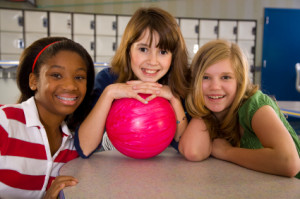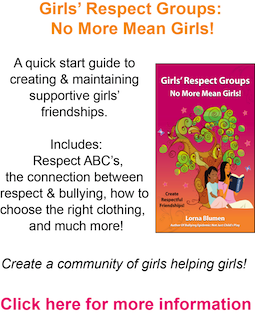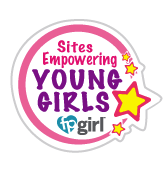In our last post, Self-Respect: Crucial Life Skill For Kids, Teens & Adults -Part 1, we discussed why it was important to focus on self-respect in young children and how to do so. Here are some additional benefits of self-respect based competence & confidence:
 These skills pay off in everyday life. That “I can figure this out” approach is a springboard to life’s challenges and growth opportunities. When kids feel competent in one area, it gives them the confidence to grow outside their comfort zone. “Should I take the tougher course? Apply for the rep soccer team? The gifted program? Work with this tough coach? Learn a new language?” A kid who’s struggling in math can dig deep and re-focus when he remembers how he built his hockey skills one drill at a time.
These skills pay off in everyday life. That “I can figure this out” approach is a springboard to life’s challenges and growth opportunities. When kids feel competent in one area, it gives them the confidence to grow outside their comfort zone. “Should I take the tougher course? Apply for the rep soccer team? The gifted program? Work with this tough coach? Learn a new language?” A kid who’s struggling in math can dig deep and re-focus when he remembers how he built his hockey skills one drill at a time.
- Respect guides kids’ choice of friends. This is THE key decision for middle and high school kids. The most important, self-protective thing your child can do is pick good friends, especially through the teen years, as parents’ influence wanes. Kids pick friends who share the same feelings and values. Kids with low self-respect find other kids with low self-respect. Bad behavior follows. Parents mistakenly think “bad” friends cause bad behavior in their kids. That’s the symptom, not the cause. My daughter’s ability to make a good decision about the spring break trip was greatly enhanced by her supportive girlfriends.
- Self-respect – and respectful friends – can protect kids from undue media influence. Our kids would benefit if adults spent less time obsessing about celebrities. In addition to focusing on the importance of what’s inside us, not just our exterior packaging, we can help kids find a balance of being hip and fashion-aware and learn to make appropriate choices for clothing, fitness, and nutrition
- Respect protects kids from bullying. Kids grounded in respect for self and others won’t bully others, make less vulnerable targets, won’t seek out bullies as friends, and won’t stand by when others are bullied. “Shawna said mean things about me to Denisa, trying to be cool and make friends. Can I trust her? Is she my friend?” Knowing you can rely on your friends for support and protection is a powerful stabilizer. Keeping kids anchored in respect vastly reduces bullying and many other discipline problems in our homes, schools, and communities.
- Respect guides your choice of romantic partners. I know it’s tough to imagine your 4-yr old with a romantic partner, but the same skills that help a child know how to pick good friends now will guide them to respectful choices as romance complicates the picture, beginning in late elementary and early middle school. Girls who treat themselves with respect will ask for respect from the boys around them. For parents of boys, you want your sons to choose girls who have respect for themselves and respect for your son. No matter what your child’s romantic trajectory, you want them to know what respect looks like in action so they give and receive respect from their friends and romantic interests.
What does self-respect look like on the inside? Below are some guidelines for preteens and teens. With the big picture in mind, parents of younger children can see how to make choices today that move their children towards the goal of becoming independent, self-confident, clear thinkers, who care for others and make good choices (Yes, mistakes will happen! Plan for it!)
Self- Respect Essentials (for the full list, go to our earlier blog article on self-respect GirlsRespectGroups.com)
- I know my strengths and weaknesses and I accept myself the way I am right now, with my imperfections. Even though I am happy with who I am and accept myself as I am today, I still want to learn, grow, and change.
- My self-respect is strong enough to handle life’s ups and downs. I can fail a test, not make the team, survive a friendship breakup, or receive tough feedback without coming unglued. I take responsibility. I know when I need to study more or do better – and I’m still a valuable human being.
- I feel and show respect for others, even when I’m angry, upset, or disagree.
- I feel worthwhile even [and especially] when I make mistakes or have challenges that reveal my lack of knowledge, experience, or ability.
- I apologize genuinely and quickly when I hurt someone.
To reach this goal, here are some everyday tips parents of younger children can put into practice:
- Build from your child’s strengths. As parents, we tend to focus on our kids’ deficiencies (like report cards) to encourage improvement. We all have strengths and weaknesses, but we really only build from our strengths. Focusing on our child’s strength gives the courage to move forward to improve our lesser abilities. That said, everybody needs realistic feedback about how we’re doing and what our next learning or growth target should be.
- Encourage your child’s self-assessment. “What do you think? Did you feel you’d prepared enough for the spelling test?”, “How’d the game go? What were your best moments? What do you need to work on?”, “How’s that conflict with Kayla going? Are you making progress towards working it out?”
- Remind your child that you still love him, even if he fails a test or doesn’t make the team. He’s a child who failed a test, not a failure.
- Mirror your child’s strengths and effort. “Wow! Do you see how much you’ve learned in the past 3 months? Your hard work really shows!”
- Look for opportunities to build your child’s real competence. Be open to everyday opportunities to learn, help, and contribute to the lives of others.
- Model respect for self and others. Speak positively about yourself, even when you make a mistake. “That didn’t work out so well. I’ll try again.” Show respect for others – no gossiping, no silent treatment.
- Demonstrate that mistakes and apologies are a normal part of life. Apologize when you make a mistake that hurts someone. Children are empowered to take responsibility for their own mistakes when they see the adults in their lives doing the same.
These skills will serve a child well into their teen and adult years.
As we help kids grow into their best selves,
it’s also a chance for parents to practice their own “Self-Respect Rehab”!
Open Discussion:
Share Your Tips!
What have been your best ideas for keeping kids, preteens, and teens, girls & boys, grounded in respect?
Learn More:
L Blumen, Bullying Epidemic: Not Just Child’s Play , Toronto: Camberley Press, 2011 (Note: Chapt 7 is about respect)
L Blumen, N Evans, & A Rucchetto, Girls’ Respect Groups: An Innovative Program to Empower Young Women & Build Self-Esteem! Toronto: Camberley Press, 2009
N Branden, NathanielBranden.com
R Brooks & S Goldstein, Raising Resilient Children. New York: McGraw-Hill, 2001
N Niemi, “I Matter, You Matter: Defining Self‐Respect vs. Self‐Esteem and Measuring this Critical Youth‐Development Asset,” RespectInstitute.org, Dec, 2012
E Robins & K Trzesniewski, “Self-Esteem Development Across the Lifespan,” Current Directions in Psychological Science, Jun, 2005


